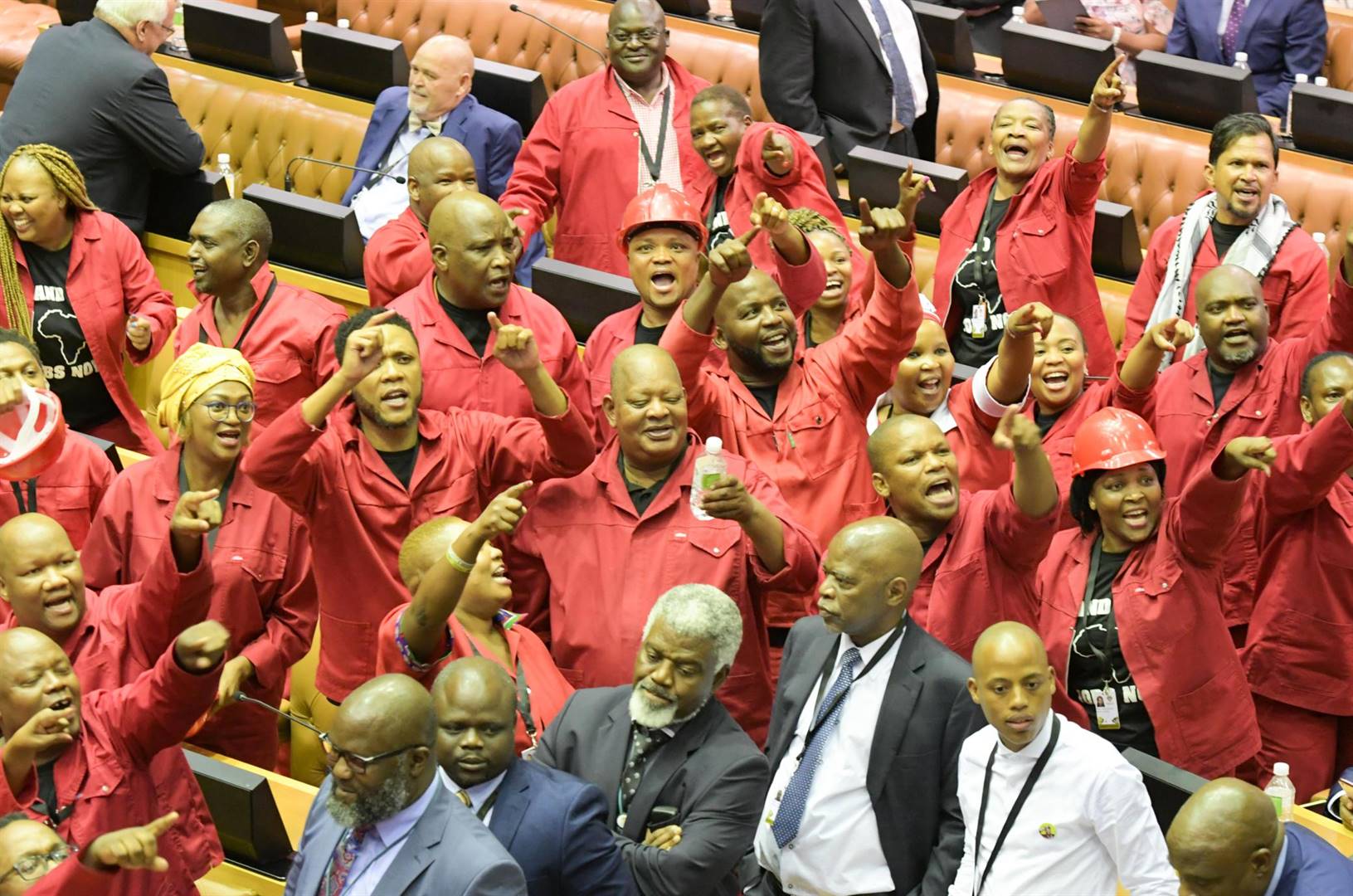
Last week’s state of the nation address (Sona) had its fair share of drama.
The EFF did exactly as it had promised in the lead-up to the Sona. It disrupted the president’s speech.
Although disruption is not a new phenomenon, it demonstrated the courage of the party’s leadership and that of its members – that they could hold Parliament to ransom while making their case known.
Public reaction was mixed. On the one hand, some sections of the public applauded the EFF for bringing up a heated robustness in Parliament.
On the other hand, there were those citizens who thought the incident was unsavoury and undermined the decorum that goes with the Sona programme and infringed the rules of Parliament.
Although freedom of speech is a constitutionally enshrined right to every citizen, none of these viewpoints is wrong.
They demonstrate that the public is alive to debates and has the courage to share them confidently, a sign of a strong democracy.
Moreover, robustness in Parliament shows a maturing democracy and should be supported if the rules of the house are not infringed. And, when they are, there are channels for remedial action and these need to be followed and enforced by relevant parliamentary structures.
Discomforting robustness
However, it is important to remember the genesis of this seemingly discomforting robustness. Political parties in South Africa have reached levels of intolerance with one another in the past decade.
The ideological divisions across political parties has continued to generate robustness, not just of ideas but also of personalities. This trend will continue into the foreseeable future if our politics will shift from battling ideas to personalities.
Although it is acknowledged that individuals embody all the above, it is notable that it is easier to respect the rights of others when the exercise of such rights is not provocative or irritating. It is much harder to respect them when such rights oppose one’s political interests and beliefs.
All these raise a critical issue about political tolerance as an important characteristic of a maturing democracy in which every political party is and all politicians are responsible for promoting such tolerance in society.
Read: This will be our relationship with Ramaphosa going forward – Malema
So, in the light of last week’s disruption in Parliament, it is vital to understand that political tolerance in a constitutional democracy is inevitable and should be embraced by all political parties as one of their primary responsibilities.
As the citizenry prepares for next year’s local government elections, they need to be educated about the need and importance of exercising political tolerance. This is the responsibility of civil society in partnership with political parties, including other key stakeholders such as the legislatures and the Independent Electoral Commission.
It is vital to communicate that political tolerance is not arrogance or a lack of respect for democracy.
It is equally important to educate the public that a sense of powerlessness fuelled by anger and humiliation can be provocative and might lead to acts of lawlessness that could eventually lead to breaking and infringing the rights and freedoms of other people.
Against this understanding, we do not judge our parliamentary sessions by decorum (although that is also important), we judge them by the degree parliamentarians exercise tolerance with one another even when it is difficult to identify with an idea that a particular party might espouse as a tenet.
Lead by example
Since tolerance is learnt, public representatives are expected to lead by example.
This is easier said than done. However, there is no other way but to embrace it as a norm in a constitutional and liberal democracy. If we don’t embrace and cherish political tolerance, we risk suppressing ideas and public debates that are useful in strengthening public confidence in the government and their political representatives.
So, the key is in balancing the democratic imperatives and obligations of political parties and politicians to live and abide by these imperatives. Otherwise, confrontation and conflicts will ensue.
I contend that, to promote and entrench a culture of political tolerance, we must allow dynamic exchanges of opinions and arguments, whereby political representatives and the public can learn from each other, get closer to the truth and benefit from a useful parliamentary robustness.
However, this robustness must not be construed to mean promotion of unruliness on the part of seemingly aggrieved political parties, nor as weakness on the part of parliamentary leadership or the ruling party.
The contestation of ideas and divergent viewpoints must not be suppressed because that goes against the ideals of a constitutional democracy. The Constitution provides the parameters to be followed by all political parties in their engagement.
Any infringement of the stated laws constitutes a transgression warranting a remedial action. However, the Constitution also places a duty on the legislature to protect the democratic participation of all political representatives irrespective of their political parties.
Democracy is about accepting and respecting the right to differ, as well as the acceptance of such differences by all.
- Kariuki is the executive director of the Democracy Development Programme
 | ||||||||||||||||||||||||||
Get in touchCity Press | ||||||||||||||||||||||||||
| ||||||||||||||||||||||||||
| Rise above the clutter | Choose your news | City Press in your inbox | ||||||||||||||||||||||||||
| City Press is an agenda-setting South African news brand that publishes across platforms. Its flagship print edition is distributed on a Sunday. |




 Publications
Publications
 Partners
Partners








